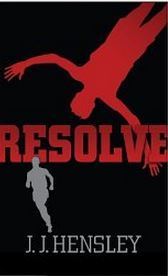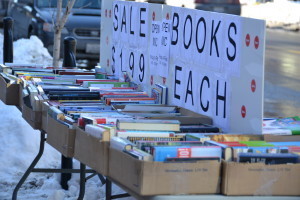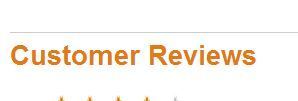Elizabeth Spann Craig's Blog, page 135
May 8, 2014
Avoiding Police Stereotypes in Novels
by J.J. Hensley, @JJHensleyauthor
As most of you, I’ve read hundreds of mysteries and thrillers. And as most of you, I’ve recognized that many of them can be formulaic and use characters that are really cookie cutter stereotypes. I think one of the most overused characters in the mystery/thriller/suspense genre is the police officer who is incompetent, apathetic, or outright corrupt.
Now in the interest of full disclosure, I spent a decade in local and Federal law enforcement, so I have no illusions at objectivity. However, the fact of the matter is that 99% of the law enforcement community is hard-working, intelligent, and caring. The problem is that many storylines benefit from having a detective who isn’t doing her job, or a patrol officer planting evidence, or an FBI agent taking a bribe. It adds drama and there is a bit of shock value when someone in a position of authority fails to do his job. But, perhaps our writing can improve and be more unpredictable if we avoid using these stereotypes.
Here are some benefits to keeping the cops competent and clean:
The story is more realistic:
Yes, there are often headlines about law enforcement officials getting into trouble. However, the media understandably latches on to these stories as police are (and should be) held to a higher standard. Additionally, the law enforcement community is much like the intelligence community as successes are rarely advertised but failures are magnified.
It’s a “cop out” (pun intended)
Honestly, it’s kind of easy to toss in an apathetic city detective, or a Fed who insists on focusing on the wrong suspect. If you protagonist isn’t in law enforcement, it gives the character a reason to pursue the truth. But if you have the cops do their job well, you have to be more creative as to why your protagonist needs to be involved in a case. As a bonus – if your cops are better, you have to make your criminals smarter!
You’ll Be Different
Last year I wrote a blog post about some ways police are inaccurately portrayed in the world of entertainment .
Unrealistic portrayals have become the norm. Be different. Be refreshing. Be accurate. Just as juries have become subject the “CSI Effect” (where they think a DNA analysis can be done in an hour and every thread leads to a conviction) readers can start believing other inaccuracies we perpetuate. Maybe the best way to improve our fiction is to get more real.
J.J. Hensley is the author of RESOLVE and other works of fiction.
RESOLVE has been named a finalist for Best First Novel by the International Thriller Writers organization.
RESOLVE was named one of the Best Books of 2013 by Suspense Magazine.
https://www.facebook.com/hensleybooks
https://www.goodreads.com/JJHensley
Twitter: @JJHensleyauthor
The post Avoiding Police Stereotypes in Novels appeared first on Elizabeth Spann Craig.
May 6, 2014
Passages of Time and Transitions
By Elizabeth S. Craig, @elizabethscraig
Transition issues are common problems in first drafts (later drafts, too). I’ve been guilty of a couple of different transition fouls in past manuscripts.
Transitions that are too long and boring:
When I was writing my first book, I had a lot of trouble with getting characters where they needed to be. This resulted in a lot of really boring, pointless scenes where the narrative went something like this: Jenny decided to head over to the restaurant to find out more about what Thomas was doing the night of the murder. She found her keys and hurried out to her car. On the trip to the Italian restaurant, she mulled over what she was going to ask Thomas. Upon arrival at the restaurant…blah! Dreck.
I think I believed it would be too choppy to suddenly pick up with the character at the Italian restaurant. Or that it was cheating. I’m not sure what was going through my head, but it took an editor to tell me to get rid of it all.
Transitions that are too choppy: Now I have the ability to go too far in the opposite direction with transitions, causing editors to write “Elizabeth, can we soften this up a bit?” or “Elizabeth, this might seem a little abrupt…” in the margins. I’m sure this is related to the way that I abruptly pick up and put down my manuscript when I have small pockets of time. It’s great to be able to write at short notice, but it can mess with the general continuity.
Just right (?):
So, a couple of different ways to deal with short passages of time (or even longer ones, actually). We can have a scene break or we can have a little transition lead-in.
With my mess of an example above, a better way of handling the car ride over would be something like this:
After hanging up the phone with Bruce, Jenny realized she was going to need to speak with Thomas again. She looked at her watch. If she hurried, she could get to the restaurant before it closed.
Twenty minutes later, Jenny asked the hostess to tell Thomas she was there.
Or something like:
Jenny hung up the phone. Clearly, she would need to speak with Thomas again.
(Scene break)
Unfortunately, Thomas wasn’t speaking. He scowled belligerently at Jenny from across the booth at his Italian restaurant.
So either way, there’s a sort of natural segue. It’s a bit of a fine-tuning thing. We definitely want to make sure that the reader is able to follow along when we jump to the next scene. They’ll want to know where the characters are and have a hint as to how much time has passed.
How do you handle transitions and time passages in your books? Are you more apt to err on the side of too-long transitions, or choppy ones?
Image: MorgueFile: priyanphoenix
The post Passages of Time and Transitions appeared first on Elizabeth Spann Craig.
May 4, 2014
About ‘Marketing to Writers’
By Elizabeth S. Craig, @elizabethscraig
I read many posts online where writers worry over centering their platforms on writing and writers. ‘Marketing to writers’ is the phase I read over and over.
This is because many writers (well, most of the writers I see, actually…me included) are blogging to writers, commenting on other writers’ blogs, and sharing writing tips with other writers. We make friends through our blogs and those writing friends of ours follow us onto our other hangouts online (Facebook, Twitter, Pinterest, etc.).
I’ve read a lot of advice lately that we should avoid focusing our online efforts on writers. That we should seek out readers online or blog with a reader focus.
I understand the advice and do agree…to an extent. Obviously, our online time in terms of marketing would be better spent in targeting our audience.
But I think it’s okay. I have no intention of targeting my readers in any way and yet they’re searching me out and communicating with me. And buying my books. I’m not losing out in the visibility department, either.
Why writers tend to focus their online efforts to other writers:
We want to connect with other writers online—for support, for resources, for encouragement. Like anyone else, we want to hang out with those who relate to us. We need writer friends, and our frequently introverted natures love the fact that we can so quickly connect and retreat online. And reaching out to readers online can feel like a weird type of author intrusion. Many of us are eager not to seem spammy.
What marketing experts recommend:
That we blog on issues relevant to our books or writing them in a way that resonates with readers.
What we could do if we wanted to reach more readers but not change our overall focus:
Guest blog on sites where our readers might hang out (book blogger sites, for instance).
Engage with our readers on one social media platform. Have that be the place where we avoid discussing the writing craft (maybe a picture-oriented venue like Instagram or Tumblr…particularly if we have younger readers).
Devote certain days of the week to readers and the others to writers.
Or…do nothing at all.
I doubt that I’ll be making any changes at all to my approach. Because I don’t feel that I’m marketing to writers—I’m connecting with them. And this helps me connect to my readers by increasing online visibility, improving search results for my name or my books’ titles, and making it easy for readers to locate and connect with me online. To find my email address and drop me a line. My readers know where to find me. And their favorite way to connect with me is email.
For me, my blogging and connecting online is incredibly important to keeping me motivated and informed as a writer. I talk to my readers through my books.
As a writer, who are you blogging and connecting with online? What are your thoughts on your approach?
Image: MorgueFile: veggiegretz
The post About ‘Marketing to Writers’ appeared first on Elizabeth Spann Craig.
May 3, 2014
Twitterific Writing Links
by Elizabeth S. Craig, @elizabethscraig
Twitterific links are fed into the Writer’s Knowledge Base search engine (developed by writer and software engineer Mike Fleming) which has over 23,000 free articles on writing related topics. It’s the search engine for writers.
Quick note of congratulations to a past guest blogger here, translator Julie Rose, on the release of a trade paperback version of The Greenland Breach (written by Bernard Besson).
Discover the Reason You Don’t Write: http://ow.ly/wdsf3 @ninaamir
Write a thriller: Conceal to create suspense in writing: http://ow.ly/wds1d @MattReesAuthor
Going It Alone: Writing Without Community: http://ow.ly/wdsKO @kimtriedman @BTMargins
Tips on Writing Humor: http://ow.ly/wdsAs
Vicarious Love: The Greatest Advantage of Multiple POVs: http://ow.ly/wdrYy @KMWeiland
4 Steps for Making Campaigns Into Written Stories: http://ow.ly/wds2x @mythcreants
The Seasons – how to use them in your writing: http://ow.ly/wdswr @AnthonyEhlers
5 Qualities of High-Concept Stories for Your Written Work: http://ow.ly/wds6D
Essential Things To Know When Writing Multicultural/Interracial PNR/SFR: http://ow.ly/wdspY @PJDeanwriter
Author branding with your pen name: http://ow.ly/wdsuh @SophiaKnightly
The Completely Backwards Way to Self-Publishing Success: http://ow.ly/wdshO @JFBookman
The Secret to Crafting High Stakes: http://ow.ly/wdsan @CSLakin
The Intentional Writer: Finding the Time, Space, and Inspiration You Need to Write: http://ow.ly/wdxpb @thecreativepenn
From One Book To Running A Business As An Author: http://ow.ly/ @JohnnyBTruant @thecreativepenn
Buzzwords and terms for SF writers: http://ow.ly/wfnlT @Massim0Marin0
Will Self-Publishing Exist in 10 Years? http://ow.ly/wfr71 @EricaVerrillo
How to Make the Bestseller Lists: Why Categories and Keywords Matter: http://ow.ly/wfqzR @RuthHarrisBooks
15 Words Coined By Famous Writers: http://ow.ly/wfs1d @huffpost
The Inside Scoop: Working with a Freelance Editor: http://ow.ly/wfpqq @AlexZamorski @womenwriters
Owning a First Draft: http://ow.ly/wfqiZ @Philip_Overby
Overview of Hyphens and Dashes: http://ow.ly/wftGL @JamesJMurray1
Ernest Hemingway’s 1954 Nobel Acceptance Speech on Working Alone: http://ow.ly/wfqTW @farnamstreet
7 Signs of a Vanity Publisher: http://ow.ly/wfnNJ @eBookBuilders
5 Ways to Drive an Editor Crazy: http://ow.ly/wdxtk @motherinferior2
How to Judge Books (Real or Imaginary) by Their Covers: http://ow.ly/wdsmz @litreactor
What Is The Right Length For a Chapter? http://ow.ly/wbMp1 @NatRusso
10 Tips For Writing A Micro Budget Script: http://ow.ly/wbLYN @ozzywood
Why Outlines Work for Some: http://ow.ly/wbMqw @DJMacHale
How to Turn That Shiny New Idea Into a Novel: http://ow.ly/wbL9K @janice_hardy
10 traits of a great script http://ow.ly/wbMob @thetakescom
Manual Transmissions and Self-Publishing: Learning the Details: http://ow.ly/wbLnL @andilit
Agatha Christie’s Secret: Break The Rules: http://ow.ly/wbLTb @woodwardkaren
Stupid Answers To Common Writing Questions: http://ow.ly/wbL6T @ChuckWendig {lang}
Audiobooks: Tips For Distribution With ACX And Marketing: http://ow.ly/wqBRg @thecreativepenn
Why Are So Few Books From the 20th Century Available as Ebooks? http://ow.ly/wbLcj @theatlantic @passivevoiceblg
3 Myths About Hiring an Editor: http://ow.ly/wbLws @write_hook
How Passion Can Make or Break Your Writing Career: http://ow.ly/wbL93 @thewritelife
What Changes in Your Scenes? http://ow.ly/wbLbf @janice_hardy
Using foreign language in your story – the balancing act: http://ow.ly/wbLog @juliettewade
Publicity Campaigns (Discoverability) http://ow.ly/wbLV4 @kristinerusch
Ernest Hemingway’s Writing Habits http://ow.ly/wbMbn @tonyriches
What are the Basics of Writing Well? http://ow.ly/wbM8i @joe_bunting
3 Steps to Honestly Disturbed Characters: http://ow.ly/wbLpX @WyattGBessing
The one word to watch out for as a screenwriter: http://ow.ly/wbLhh @KenLevine
Issues with Sequels: http://ow.ly/waFb8 @beccapuglisi
Want to Become a Writer? How to Set Up Your Writing Area: http://ow.ly/waygB @WriterAmyKierce
Writers, agents wrestle over issues on the conference circuit: http://ow.ly/wof2Z @Porter_Anderson @brandibowles
4 Levels of Editing Explained: Which Service Does Your Book Need? http://ow.ly/waFgW @CKMacLeodwriter @CarlaJDouglas
3 Tips for Finding Beta Readers: http://ow.ly/waFqr @losapala
Reasons NOT to Sign with a Publisher: http://ow.ly/waxV9 @AdamSilvera
Screenwriting: Find a Mentor: http://ow.ly/waxqo @screenwritingu
Letter from a Literary Agent: http://ow.ly/wazRX @jakonrath
The 7 Core Competencies Vital to Writing Success: http://ow.ly/waEO4 @MattEEaton
The Beginner’s Guide to Self-Publishing Your Book Through Amazon: http://ow.ly/wazgR @djworking @forbes
What Compels an Agent to Sign an Author? Q&A With Literary Agents: http://ow.ly/waF3c @HeatherHummel
Understanding “In Medias Res”: http://ow.ly/waETZ @kristenlambtx
10 Ways to Inspire, Motivate, and Encourage Young Writers: http://ow.ly/waxay @AnthonyDejolde
Are There Limits to Literary Citizenship? http://ow.ly/wazut @Janefriedman
The Single Best Way to Sell Books (Or Lose a Sale): http://ow.ly/wayr2 @kristenlambtx
5 Questions a Self-Publisher Must Ask: http://ow.ly/waxz7
Are Print Books Necessary in the Digital Age? http://ow.ly/wax13 @juliemusil
Emotionally detached characters in crime fiction: http://ow.ly/wltxF @mkinberg
Quick Tips: Common Comma Errors: http://ow.ly/w7F3X @Jen_328
Fix Showing vs. Telling with Macros & Word Lists: http://ow.ly/w7Bfs @jamigold
How to be a Writing Lifer: http://ow.ly/w7BtI @JordanRosenfeld
The 12 Best Writing Fellowships & Retreats in the US: http://ow.ly/w7Q3J @openroadmedia
Why it’s important for readers to see your cover numerous times: http://ow.ly/w7xT5 @MSaintGermain
How to Treat Your Book Like a Business | Wise Ink’s Blog: http://ow.ly/w7PIm
How to Make People Read Your Business Card: http://ow.ly/w7yvZ @carolewyer
How to Build Buzz for Your Book with Social Media: http://ow.ly/w7Bbg @PegFitzpatrick
Will Self-Pub Dwindle When There’s Less Backlist for Authors to Exploit? http://ow.ly/w7PLk @Janefriedman
The Pros and Cons of Writing a Novel in Present Tense: http://ow.ly/w7ymh @writersdigest
What Does It Mean to “Win” at Writing? http://ow.ly/w7F7X @DavidBCoe
Do writers care about lit fic’s future in digital publishing? Chat at #EtherIssue with @Porter_Anderson 11am ET, 4 p.m. BST (Now)
11 Twitter Tips for Writers: http://ow.ly/w7Frb @rsquaredd
12 Tips to Develop a Powerful Personal Brand: http://ow.ly/w7zah @FeldmanCreative
A screenwriter’s rookie mistakes: http://ow.ly/w7yYZ @KenLevine
Writing and the Creative Life: 18 Things Highly Creative People Do Differently: http://ow.ly/w7Ffu @gointothestory
5 Books for Writers That Aren’t about Writing: http://ow.ly/w7PWu @SandraPeoples
Writing About Personality Disorders: An Overview http://ow.ly/w4y8b @SkyeFairwin
A look at pulp hero genres: http://ow.ly/w4ymI @thepulpnet
Paragraphing Dialogue: http://ow.ly/w4xBf @WriteDivas @nickdaws
When A Hobby Becomes An Identity: http://ow.ly/w4xJ1 @amazingstories0
Ethics in Fiction: Don’t Glamorize Murder: http://ow.ly/w4yhU @DeborahJRoss
5 tips for finding the missing pieces of your memoir: http://ow.ly/w4z02 @onewildword
Why 1 popular blog is discontinuing comments: http://ow.ly/w4z5C @soniasimone
Thoughts on how to spend your time as a writer: http://ow.ly/w4ytF @NathanielTower
Think Short to Reach Your Long Nonfiction Writing Goal: http://ow.ly/w4y4x @ninaamir
Game On! 10 Word and Lit-Based Apps: http://ow.ly/w4xXq @chris_shultz81
Looking for Literary in Digital Places: http://ow.ly/wi7xh @eve_grubstreet @Porter_Anderson
6 Steps to Becoming a More Energetic Public Speaker: http://ow.ly/w4yAv @RobBiesenbach
How to Spot Your Writing Tic: http://ow.ly/w4xPC @larin20
4 Unrealistic Expectations You May Have About Being a Freelance Writer: http://ow.ly/w4yHb @francescaSN
Choosing Your Own Adventures: http://ow.ly/w4yLq @ecmyers
Building Emotional Anticipation: http://ow.ly/w4ySO @Kid_Lit
Writing survival secret: the feel-good file: http://ow.ly/w4zjY @JordanMcCollum
Newsletters as Promo: http://ow.ly/wgbIG
The London Book Fair: Many Tote Bags but Few Industry Solutions: http://ow.ly/w3yU4 @elizabethminkel @the_millions
10 Paradoxes of the Writing Life: http://ow.ly/w3AiM @chipscan
Thoughts from the Submission Pile: http://ow.ly/w3xTV @thejordache
How Not to Begin Your Novel: http://ow.ly/w3zvS @jawlitagent @pubhub_blog
How Do You Know When You Need to Revise? http://ow.ly/w3yOb
3 Things 1 Writer Learned from Henry James: http://ow.ly/w3zji @victoriamixon
How To Pick The Right Genre For Your Novel (And Why Your Sales Depend On It): http://ow.ly/w3yeO @writetodone
How to Get Your Book into More Categories on Amazon with Keywords: http://ow.ly/w3A6T @goblinwriter
How to Learn Scrivener the Fast Way–Free Webinar on Thursday: http://ow.ly/wfukX @JFBookman
Becoming a full-time writer: http://ow.ly/w3yRx @ChuckWendig {lang}
5 Essential Online Script Libraries For Wannabe Screenwriters: http://ow.ly/w3zKY @makeuseo
Using Your ISBN on Your Author Website for Better Search Results: http://ow.ly/w3Anm @pubsmartcon
The Mindset of Successful Self-Publishers: http://ow.ly/w3xVT @jfbookman
Top 10 List of Truths for Self-publishers: http://ow.ly/w3yja @AP_Fuchs
Breaking Up With Your Novel: http://ow.ly/w3y7S @melissagmcphail
Why authors need headshots: http://ow.ly/w3AcQ @JonathanAuxier
Thoughts from the Intern Slush Pile: Common Issues: http://ow.ly/w3ynP @ava_jae
Books Every Writer Needs to Read: http://ow.ly/w1yLC @imjasondiamond
A rallying cry for high standards in self-publishing: http://ow.ly/w1zzf @DebbieYoungBN
10 Tips to Proofread Your Novel Like a Pro: http://ow.ly/w1yzn @LitCentralOC
Writers – Have You Considered Sending Your Short Stories Overseas? http://ow.ly/w1zRv @TheReviewReview
An agent answers writers’ questions: http://ow.ly/w1zjg @MacGregorLit
Character Relationships: Til Death Does Them Part? http://ow.ly/w1zf3 @CantrellJason
Planning a Series: http://ow.ly/w1z9V @stdennard
The post Twitterific Writing Links appeared first on Elizabeth Spann Craig.
May 1, 2014
Thoughts on Reader Reviews
By Elizabeth S. Craig, @elizabethscraig
I’ve learned not to talk to my family about reviews. I’ve seen them flinch in the past when I’ve mentioned some of the negative things said about my books. I realize that they haven’t developed that ability to be detached about it yet. To them, a negative review is as hurtful as if someone publicly said something negative about me.
For me, it’s not like that. Not unless, maybe, it’s been a bad, bad day and the review is the final straw. Or if I’ve lost a reader. That’s probably the single most hurtful thing I can read from a reviewer—something along the lines of: “I’ve read all her other books but after this one I won’t be buying any more.” That does have the power to really mess up my afternoon…if I let it.
My most-reviewed book has 578 reviews. I haven’t read all of them, but enough to get a snapshot or big picture of what the readers thought. And, in general, I do find reader reviews to be helpful.
Reviews give me a picture of my readers. I can frequently tell their age (readers often state it on the reviews), their education level, and where they’re from. It’s easy market research.
Reviews give me direction. Readers talk about what they like and don’t like in my books. If enough of them talk about an aspect they don’t like…you can bet that I’m going to be making adjustments to my general game plan in the next book. As a commercial writer, I’m writing for them, after all.
Customer reviews can offer valuable insight to other readers–and can give us more visibility on Amazon. I’m one of those people who spends a lot of time researching even minor purchases. We broke our filtered water pitcher here and needed to replace it. I wanted a full picture of what I would be buying. So I looked at Consumer Reports (which was reviewing the pitcher in terms of filtration ability, flow rate, and clogging), but then I expressly clicked over to Amazon to see what customers would say. I wanted both types of reviews—the critical review done in a lab under special conditions, and the customer reviewer saying, “This thing wouldn’t fit in my fridge.”
As a reader, though, I don’t read customer reviews before buying a book on Amazon…I’d rather read a book blogger’s review or a Publishers Weekly review (if there is one). That’s mainly because customer reviews have a scary number of spoilers in them.
So we have different types of reviews in the publishing world right now. We have critical reviews from trained journalists and well-read and practiced book bloggers…and then we have reader reviews.
Journalist Porter Anderson explained the difference between these reviews beautifully in his Writing on the Ether post last year for Jane Friedman’s blog, “Let’s Review Criticism.” Porter states:
Actual criticism never seeks to tell users what to do. Instead it takes the work at hand and analyzes it in terms of what its creator(s) intended to do. What did this author mean to achieve? Did he or she achieve it?—how? how not? how well? The user of criticism is then left to decide whether the analysis makes the work worth looking into. And he or she then decides whether the work is “good” or otherwise. Criticism asks you to think for yourself, not be told to “read this” or “don’t read that.”
But are most readers reading book blogger reviews or reviews in publications like Kirkus or PW? Or are they paying more attention to reader reviews? Judging from what I’ve seen in my own books’ reviews, readers chat with each other in the reviews. Some reviews get comments. Readers certainly seem to be reading them and discussing them. So they’re important.
Reader reviews also seem to figure into Amazon’s mysterious algorithm that determines visibility on the retailer’s site. The more reviews you have, the better.
And, this is something most every writer already knows….I never respond to reviews. Not glowing reviews, not mediocre reviews, not scathing reviews. Not even reviews that seem unfair or incorrect. I disengage…the reviews are written by readers for readers. They’re not written for me.
What are your thoughts about reader reviews? Are they helpful or hurtful? Are you able to find something constructive out of even some of the worst ones?
The post Thoughts on Reader Reviews appeared first on Elizabeth Spann Craig.
April 30, 2014
My Mistakes and Procrastinated Bits
By Elizabeth S. Craig, @elizabethscraig
The last time I ran a post on mistakes I’d made, it helped illuminate areas I’d fallen behind on so that I could stick them on my calendar as to-dos. I’m hoping that will be the same today, too (some things can’t really be fixed, but can serve as a warning to others).
Here we go:
Not making sure I’m updating all the pages in my website. Embarrassingly, a reader emailed me on this. She wanted to see immediately, on my site’s home page, when I had an upcoming release. She’s right—that’s really the point of the site. I had the information on my books page, but the welcome page is a bit better. Plus, I hadn’t updated that page often, thinking I’d left it as a static generic welcome. Not so…it listed “recent releases” from a year ago.
Not setting up PayPal/e-commerce/a way to sell ebooks on my site. And I’m still not there yet. I keep hearing this is an easy/smart thing to do on our website (see Savvy Writers’ post, “How to Sell Your Books From Your Own Website.”)
Not setting up Amazon Affiliate links. It’s kind of silly that I haven’t, considering that I always have links to my books here and others’ books. Problogger Darren Rowse has a post explaining the benefits: “The Ultimate Guide to Making Money with the Amazon Affiliate Program.”
Being slow to send newsletters (see last post—I’m working on this).
Wasting valuable time figuring out how to do something when I’d have been better served paying someone to take care of it. I am somewhat technical in that I know enough to be dangerous with nearly everything. This encourages me to keep tinkering with things that I really have no business working on. That time would be better spent writing. For me, it’s much better to hire someone to help with website design, book formatting, etc.
Not saying no enough. I’m not the only one in this boat, am I? I’m getting better—I can say no in email and on the phone. It’s the in-person bit that I still struggle with.
Being slow to host my blog on my website. As Thomas Umstattd explains in his post “7 Secrets for Amazing Author Websites”for AuthorMedia: “(Websites with integrated blogs) get more traffic because blogs posts are more likely to be shared on social networks than static content. Blogs also boost your rankings on Google. Each blog post is a chance to get Google points to rank high in searches. Think of it as a lottery ticket. The more blog posts you write the bigger chance you have of hitting it big.” At least I’m here now.
Not making my content work harder for me earlier. I’ve mentioned this before. But instead of focusing 100% on creating new content, we should remember that the content we’ve already got can go on sale in different formats: print and audio, for instance. I’d just offered digital ebooks of my self-published books for a long while…and now I receive regular income by publishing my content in other formats.
Setting up separate Twitter and Facebook and Goodreads identities for my pseudonym. I’m not sure how much time I thought I had, but this was a clear miscalculation. Not only that, I really just needed to promote everything through my actual name.
Where I’ve done better:
Reserving my name on various social media whenever the Next Big Thing comes out. Even if I have no plan at the time to engage on the platform.
Knowing my strengths and weaknesses and saying no to projects and editors/publishers when I’m asked to do something I’m not great at.
Keeping to a schedule.
Not rushing my self-publishing.
Doing things I don’t enjoy but know to be good for visibility…like the occasional giveaway on Goodreads.
So there we have it. Hope that listing some of my missteps might help others avoid them. What kinds of things have you learned as a writer? Things you’ve done right? Things you haven’t? What have you procrastinated on?
Image: MorgueFile: jdurham
The post My Mistakes and Procrastinated Bits appeared first on Elizabeth Spann Craig.
April 27, 2014
Newsletters as Promo
By Elizabeth S. Craig, @elizabethscraig
I was very late to hop on the newsletter bandwagon. I’ve finally started sending them. Of course, before I start anything, I have to try to find out as much as possible about best practices…because, sadly, I’m neurotic that way. So I spent several days researching best practices and the various newsletter services before sending my first newsletter. The newsletter itself took a fraction of the time to create.
I heard over and over that successful newsletters have one thing in common—it’s all about what we could do for the reader instead of what the reader could do for us.
I somehow feel remarkably apologetic when I do send out newsletters. I have to remind myself that these readers signed up—on purpose. Without even being asked. With no contest or giveaway if they signed up. They just clicked on the link and entered their address.
Ultimately, that’s what you need—readers who sign up for your newsletter because they’re interested in learning about new releases, etc. These folks don’t need a hard sell because they already want your books.
Here’s what I learned from my research and from my short experience with newsletters:
Mention your newsletter in your site’s sidebar or in your email tagline. I use MailChimp, which is free (at least, it’s free for the number of subscribers that I have—as long as you have 2,000 or fewer subscribers, you’re good) and they have a plug-in that you add if you’re a WordPress user. It makes adding a newsletter signup to your site very simple. Writer Molly Greene has a nice overview of MailChimp in her post, “How To Use MailChimp – From Sign-Up To ‘Send!’”
Newsletters with interesting or useful content are opened and read more frequently. Consider using a rule of thumb like the popular 80/20 rule…80% useful/helpful content and 20% marketing. Or consider using even less marketing, if you can.
Offer an easy way to unsubscribe/opt out.
Use a short, explanatory subject line and start out the newsletter with a short teaser of what the newsletter includes (and what value the content has for our readers).
We shouldn’t send newsletters too often or too infrequently. Most newsletters seem to be sent quarterly unless there’s something special, like a release, to announce.
Understand our readers and what they like. Who are they and what interests them? How can we provide that?
Offer extras and giveaways and other special content that only newsletter subscribers receive: exclusive excerpts, short stories with our characters, coupons for book discounts, other freebies.
We should never add someone to our newsletter mailing list… they should add themselves. Our list should only go out to subscribers.
Provide a means for readers to learn more about our books and to contact us online.
Do you send out newsletters? Any tips regarding interesting content? What’s your experience been like?
The post Newsletters as Promo appeared first on Elizabeth Spann Craig.
April 26, 2014
Twitterific Writing Links
by Elizabeth S. Craig, @elizabethscraig
Twitterific links are fed into the Writer’s Knowledge Base search alengine(developed by writer and software engineer Mike Fleming) which has over 23,000 free articles on writing related topics. It’s the search engine for writers.
An Agent’s Role in Shaping an Author’s Career and the Second Book: http://ow.ly/vOEIT @ElisabethWeed @writerunboxed
Are Your Stakes High Enough? http://ow.ly/vOCeB @janice_hardy
Why a Writing Routine Matters and How to Start One: http://ow.ly/vMsYi @stacyennis
5 qualities important to successful self-publishing: http://ow.ly/vMoOt @ninaamir
10 Moments in the Writer’s Life: http://ow.ly/vMsbx @rchazzchute
The Pros & Cons of Small Presses: http://ow.ly/vMnAB @ibelieveinstory
Promo No-Nos for Authors: http://ow.ly/vMnqC @kgmccullough
Is Norway Paradise for Publishers? http://ow.ly/vMo73 @pubperspectives @DennisAbrams2
How to write a novel if you’ve never done it before: http://ow.ly/vMsgr @janelebak
How to Find and Choose a Literary Agent: http://ow.ly/vMoxu @WritingForward
15 Ways To Improve KDP � Progress Report: http://ow.ly/vISQ0 @DavidGaughran
Amazon’s Fan Fiction Kindle Worlds Offers Access to Writers: http://ow.ly/w0GiL @ZimblerMiller
People are up to twice as creative when they’re walking, study reveals: http://ow.ly/watW9 @MailOnline
5 Ways To Impress A Literary Assistant (Or At Least Not Irritate Them): http://ow.ly/vY42z @salrowb
All Character, No Plot: http://ow.ly/vY3W7 @mooderino
Podcasts for Writers: http://ow.ly/vY3ID @jocelynk414
Do You Know Your Novel’s Theme? http://ow.ly/vY4Il @janice_hardy
Why Spec Scripts Fail: Failure To Do Your Homework: http://ow.ly/vY4xA @stewartfarquhar @scriptmag
What Makes a Good Writer? http://ow.ly/vY5iS
In Defense Of ‘Difficult’ Books http://ow.ly/vY4nM @huffpost
Plotting With Yes or No Questions: http://ow.ly/vY6tE @Janice_Hardy
Nonfiction Dialogue: http://ow.ly/vY4hS @eb_bartels
Author Myths: http://ow.ly/vY5cK @BlakeBooks
A Simple Hyphenation Rule: http://ow.ly/vY6qW @CSLakin
Balancing the Business Side of Writing: http://ow.ly/vY6oC @Kathy_Collins
One writer defends being a no-niche blogger: http://ow.ly/vY5l1 @KimUlmanis
Free the Writers! (From Each Other): http://ow.ly/vY6zA @Porter_Anderson @writerunboxed
Hooking Boys on Books: http://ow.ly/w9xE4
Publishing with a Small Press: http://ow.ly/vY49V @courtneymauk
5 Warning Signs Your Story Needs Revision: http://ow.ly/vY4jM @kristenlambtx
10 Best Selling Self-Published Authors: http://ow.ly/vWTJH @TheRichest_Com
How to Become a Freelance Writer in 900 Simple Steps: The Existential Crisis: http://ow.ly/vWUhk @writerscramp1
How to Create a Print Book http://ow.ly/w4bKF @JulieMusil
Rules for mystery writing? There are no rules. http://ow.ly/w8P0u @JungleReds
How to Make an Audio Book: http://ow.ly/vWTrx @HazelGaynor
Giving Fans a Good Series Finale: http://ow.ly/vWTTE @julie_glover
In Defense Of Low-Stakes Storytelling: http://ow.ly/vWTHi @io9
Self-Published Authors Don’t Need a New Term: http://ow.ly/vWTXr @brooke_warner
Crowdfunding a Debut Novel – One Writer’s Story: http://ow.ly/vWUga @nickdaws
Romance Roundtable: – Writing Sex Scenes: http://ow.ly/vWTFq @EliseCyr
How to Write a Great Antagonist: http://ow.ly/vWTnv @ava_jae
7 Ways to Quickly Write Books (That Don’t Suck): http://ow.ly/vWTy3
How to Start Your Novel: http://ow.ly/vWUiV @ChuckSambuchino
‘Game of Thrones’ Author George R.R. Martin: The Rolling Stone Interview: http://ow.ly/w7FzB @rollingstone
The genre debate: We don’t think of Dickens as a historical novelist: http://ow.ly/vWTti @guardianbooks
Writers admire star indie authors and follow their craft and promo advice. Do we read their books? http://ow.ly/w7tMq @Porter_Anderson
Should Editors be Writers? http://ow.ly/vWTPA @noveleditor
Decline in male readers alarms authors: http://ow.ly/vVLv0 @guardianbooks @The_Real_McNab
Creating Stunning Character Arcs: The First Half of the Second Act: http://ow.ly/vVMFp @KMWeiland
10 Things 1 Author Would Like To Say To Young Writers: http://ow.ly/vVLHO @ChuckWendig (lang.)
Mandatory Solitude: Writers: http://ow.ly/vVB7H @booksthatmatter
Action Too Early in a Book: http://ow.ly/vVLrv @beccapuglisi
A Tip for Avoiding Plot Holes: http://ow.ly/w4J1J
5 Quotes On Books and Writing From the Old Masters: http://ow.ly/vVzia @johannthors @bookriot
Paulo Coelho: Ignore the Web’s anonymous; they’re miserable: http://ow.ly/vVxVs @ChrisMatyszczyk
The Best Apps for Any Kind of Writing: http://ow.ly/vVxx7 @kingthor
When an author should self-publish and how that might change: http://ow.ly/vVyAZ @MikeShatzkin
Embrace the Tech We Authors Need to Succeed: http://ow.ly/vVzp3 @Jason_Matthews @JFBookman
Screenplay Review – Demolition: http://ow.ly/vVA1K @scriptshadow
3 ways to keep your book sales up as eBook sales slow down: http://ow.ly/vVy3i @Bookbaby
Using A Crowd To Create Tension In Your Story: http://ow.ly/w4ONt @SharlaWrites
How Agatha Christie Hooked Readers: http://ow.ly/vVytT @woodwardkaren
The Bad Writing Advice that Kills Your Success: http://ow.ly/vVy8a @menwithpens
Writing lessons learned from WOOL: http://ow.ly/w4bCI @JulieMusil
6 different travel writer personalities: http://ow.ly/vVyKH @MatadorNetwork
Starting Your Novel: The First Choice You Need to Make: http://ow.ly/w4Oo4 @lesliemillernow
Indie Bookstores’ Great Business Practices: http://ow.ly/vVxK4 @flavorwire @imjasondiamond
Does publishing’s gender gap affect boys’ reading habits? Chat at #EtherIssue 11 a.m. ET/4 p.m London (now) @Porter_Anderson @scribblestreet
James Patterson On How To Write An Unputdownable Story: http://ow.ly/vVyex @joeberkowitz
The Writing Process: Get Sh*t Done: http://ow.ly/vVz81 @rebeccatdickson
How Not to Begin Your Novel (by Julia A. Weber): http://ow.ly/w3zAb
How to Cross ‘the Line’ and Take Your Novel to the Next Level: http://ow.ly/vVxAM @Janice_Hardy
Diversity Is Not Enough: Race, Power, Publishing: http://ow.ly/vVxOU @djolder
10 Must-Dos for Writers: http://ow.ly/vVzIj @stevelaubeagent
Fictitious Dishes: Elegant and Imaginative Photographs of Meals from Famous Literature: http://ow.ly/vVxZj @brainpicker
Parts of Story: Scenes: http://ow.ly/vQvFS @woodwardkaren
The power of the short story : 5 reasons we should write them (and read them): http://ow.ly/w3zG0 @IBMartyn
Literary vs. Genre Fiction: http://ow.ly/vQvC1 @jamigold
The Case for Made-Up Words: http://ow.ly/vQvZ9 @Sarah_Skilton
Game: How to be a writer: http://ow.ly/vQwCJ @CartoonKahuna @gaufre @Joypress @paperhaus
Writing is tough–support from others is vital to continuing: http://ow.ly/vQv9y @marymontanye
Is the lack of reading by boys due to gender imbalance in the industry? http://ow.ly/w3inT @scribblestreet @Porter_Anderson
What Film Teaches Writers about Editing: http://ow.ly/vQvpf @BTMargins
How writing fiction helps us confront the uncertainties of life: http://ow.ly/vQxty @vgrefer
5 Tips for Writing Quickly and Effectively: http://ow.ly/vQwm8 @workawesome
How Writers Can Work with Game Developers: http://ow.ly/vQw87 @MarkPiesing
Getting Down to Writing: Dealing With Common Issues Preventing it: http://ow.ly/vQvNe
Finding that Masterpiece Within: http://ow.ly/vQwQP @DLKoontz
All Character, No Plot: http://ow.ly/vQv38 @mooderino
Should You Fire Your Literary Agent? 10 Signs It’s Time To Say Good-bye: http://ow.ly/vQxyK @writersrelief
Hate-Reading: http://ow.ly/vQwhu @SadieStein @ParisReview
The novice’s guide to writing: http://ow.ly/vQx9R @JFGibsonWriter
Purging Your Writing Fear: http://ow.ly/vQvxU @beccapuglisi
A writing resource for information on improving your craft–the WKB: http://ow.ly/vOoiG @DarlaGDenton
A tip for writing strong characters: http://ow.ly/vOEfH @scriptquack
Do Negative Thoughts Give You Writer’s Block? 5 Ways To Cut Loose: http://ow.ly/vOCaK @writetodone
8 Steps to an Agent, a Publisher, and a 2-Book Deal : http://ow.ly/vOCmn @DonnaGalanti
Signing A Contract for an Unfinished Manuscript: http://ow.ly/vODSB @LiteraryMinded
4 Common Attributes of Successful Writers: http://ow.ly/vOCD0 @NatRusso
4 Kinds of Editors (and Agents) You’ll Meet In Publishing Heaven: http://ow.ly/vODeI @literaryeric
10 Rules of Fiction Writing as Culled by The Guardian: http://ow.ly/vOE1J @ManRepeller
How to Get More Views on YouTube (video): http://ow.ly/vODFK @bookgal
Journalists are the least well-read people? http://ow.ly/vOCOm @guardianbooks
The 10 Worst Pieces of Writing Advice You Will Ever Hear: http://ow.ly/vODMX @manzanitafire
A character conflict generator: http://ow.ly/vZFQw @daretoeatapeach
Making it as a Travel Writer: http://ow.ly/vODqZ @alexleviton
The Translator as Agent: http://ow.ly/vODC7 @oliviasnaije
7 Reasons Most Authors Fail: http://ow.ly/vOEAE @SeanPlatt
Good locations for murders in crime fiction: http://ow.ly/vZ0GZ @mkinberg
Some self-pubbed writers still limiting themselves to printed books: http://ow.ly/vOCsF @ScottTheWriter
8 Writing Strategies for People Who Say They Can’t Write: http://ow.ly/w0Hb1 @CatClifford
The genre debate: ‘Literary fiction’ is just clever marketing: http://ow.ly/w0H8S @elizedmondson
Follow Through with Your Action: http://ow.ly/wbLNt @write_hook
Crafting an Ending that Sings: http://ow.ly/w0GOU @stdennard
Writing Characters that Sell: http://ow.ly/w0GAE @shalvatzis
How to Write a Novel Synopsis: 5 Tips: http://ow.ly/w0GfH @ChuckSambuchino
Author Website Checklist: 31 Items to Get Right: http://ow.ly/w0FSD @fictionnotes
How Traveling Can Inspire You to Write Creatively: http://ow.ly/w0GaX @write_practice
7 essentials for writing a good novel: http://ow.ly/ @roz_morris
Making Good Characters Rationally Self Destructive: http://ow.ly/w0GrB @bookviewcafe
6 Ways to Enjoy the Editing Process (Seriously): http://ow.ly/w0GDd @Write_Tomorrow
6 Defining Characteristics of Strong Female Protagonists: http://ow.ly/w0GvZ @writers_write
How to Write a Novel as a Collaborative Team: http://ow.ly/w0G79 @AdriennedeWolfe
The Yellow Light Reversion Clause: http://ow.ly/w0Gdn @HughHowey
How to Write a Great Science Fiction Novel in 7 Easy Steps: http://ow.ly/w0H1q @io9
10 Great Movies About Writing: http://ow.ly/w1ywO @ericblairlives
An Editor’s Skill Set: Feedback: http://ow.ly/w1yVu @changeitupedit
3 reasons hybrid publishing isn’t for everyone: http://ow.ly/w1yHw @JanetKGrant
Why the German market is important for self-published authors: http://ow.ly/w1ypG @EviChantzi
Making a Good Script Great: http://ow.ly/w1z5H @scriptmag
How Repetition Weakens a Story, and What You Can Do: http://ow.ly/w1zGn @annbauerwriter
An Agent with 6 Reasons You Need A Literary Agent: http://ow.ly/w1yPM @carlywatters
15 Places to Promote Your Book for Free: http://ow.ly/w1zh6 @galleycat
For kids’ book author Mo Willems, childhood is an awful time: http://ow.ly/w1z28 @CBSSunday
The post Twitterific Writing Links appeared first on Elizabeth Spann Craig.
April 24, 2014
Hooking Boys on Books
by Elizabeth S. Craig, @elizabethscraig
This post is written by both Elizabeth the Mom and Elizabeth the Author. Although the subject of encouraging boys to read is one that’s been important to me for seventeen years, it recently came to the forefront of online debates with the publishing of a report by UK writer Jonathan Emmett. The report’s findings were covered by industry reporter Porter Anderson in his Publishing Perspectives story on April 22, “What if Boys Can’t Find the Right (Reading) Stuff?” The report focuses on the gender gap in both reading ability and interest in books, and looks for possible causes.
What I wanted to cover today was primarily ways that we can hook boys (early) on books and reading. Early action is best since it’s too hard to play catch-up after boys have had years of poor reading experiences…and have moved on to gaming, television, and other mediums that get it and target boys.
It’s important to preface this post with a note that not every boy is interested in boy-targeted books. And that some girls will be interested in boy-targeted content. And our end goal is just to have options to foster engaged readers. It’s called job security for writers.
As another note—ordinarily we think of our girls being shortchanged, as they have so often in the past. Here is an instance where our boys could be shortchanged…and in an area where we should try for some balance. As Emmett put it on Twitter: “…we need to offer a menu that caters to wider tastes.”
Potential Factors:
I think that the controversy stirred up by the report, Cool not Cute, was caused by news agencies in the UK focusing on the fact that Emmett mentions gender imbalance in publishing as one contributing factor of boys having difficulty finding engaging books. (Imbalance in publisher acquisitions, reviewing—Porter Anderson shares Emmett’s chart showing gender balance of UK children’s book reviewing, library acquisitions, classrooms, and the fact that most children’s books are purchased for kids by women.) This is, clearly, a loaded subject.
There may be another angle here—money. This ties in a bit with publishers choosing books that they feel may appeal to female buyers. Money is usually at the base of many decisions made by publishers…understandable, since publishing is a business (something that’s frequently forgotten). But I wonder if there might be something of a vicious cycle going on there—publishers/editors aren’t choosing content targeted at boys because they haven’t historically been strong sellers. But are they slow sellers because there’s not enough out there targeted to boys…and we’re losing them to other media?
But I’m less interested in the root cause of the problem and more interested in how to go about fixing it. And hooking both boys (who appear to be becoming disengaged) and girls on reading.
My background:
I’ve got a seventeen year old boy who has a preference for boy-targeted books (and also content that appeals to both genders—Hunger Games, Divergent). It has been tough finding him books and he’s an avid reader who can knock out a couple of books a week.
I’ve got a twelve-year old girl with a preference for girl-targeted books (and also content that appeal to both genders…see above). She’s an engaged reader—an avid one when she has latched onto a good series. Since she’s 4 ½ years younger than her brother, I had high hopes of just handing over his (extensive) library to her. No way. She has her own personal tastes and good for her. It has been much, much easier finding books that she enjoys.
My experience:
The hardest part of the process, I think, was picture books and early readers/first readers (books with a maximum of about 1500 words) for my son. We rarely got books for him in the new release section of the picture book area…we relied heavily on classics—Dr. Seuss, Curious George, Thomas the Tank. Because of the rate we were reading, we went through books quickly and read them over and over. I had a tough time finding him exciting early chapter books. I talked to librarians, I quizzed other parents, I pored over websites and book blogs.
When my son was in first grade, I started spending multiple hours a week researching books. My solution to the problem was to quickly advance his reading level (spending many more hours with him—reading to him and listening to him read) so he could have more choices. I could afford to make the time and had the passion for encouraging reading for both my children—but what happens to children when parents can’t make the time?
What we can do:
What the industry can do: I think the best thing the industry can do is to be aware of the problem. As gatekeepers, open up the playing field to content that target both genders and provide a wider variety of books to appeal (early) to children with many different interests.
What writers can do: Although the market for books for the very young and young reader (picture books, some early readers/early chapter books) are still very tied to traditional publishing…self-publishing has really widened the field in terms of selection for middle grade and teenage boys. Perhaps it can do the same with early reading. There are no gatekeepers there but readers. Writers who are looking for a niche that hopefully has the potential for tremendous growth (assuming we can hook boys on books)—and a field that’s wide open compared to other, more competitive markets—should consider boy-targeted material. Visibility equals success in this business, and this would be a way to stand apart from the pack.
There are interesting ideas for writers in this study , which provides a bit of market research for anyone interested in writing boy-targeted picture books…or picture books for girls who also enjoy these elements. There will most definitely be boys who are not interested in the elements listed below. But those readers can find ample material on the shelves that exclude it. The point here is that these are components that are found in other media that have the ability to hook boys…and are scarce in many picture books:
Combat and violence (clearly, this would need to be age appropriate…and may even include cartoon violence that so many of us related to in other media… Bugs Bunny, for instance).
Technology
Peril and threat
Irredeemable villainy
Male protagonist
Rude humor
Cut out the Cute
For further explanation of these elements (and for space considerations for this post), check out Cool Not Cute.
What parents can do:
Find periodicals in a variety of different subjects: We started with “Ranger Rick.” Then we checked out other periodicals from the library to see what he liked—even magazines like “Popular Science” and “Popular Mechanics.” I also had the newspaper open on the breakfast table…there would always be at least one story in the paper that would be interesting to a kid, even if it was in the sports section. And the funnies have always been popular.
Make light reading available. Garfield, Peanuts and other comic books on the table at breakfast and afterschool snack time. Graphic novels of classics were good intros to the classics: Moby Dick, Legend of Sleepy Hollow, Beowulf.
Avoid being critical of reading choices our child makes at the school library.
Find elementary reading material with a lot of books in the series—like Magic Treehouse, which appeals to both girl and boy readers.
Experimenting with genres on sites like Amazon or at the library. Experimenting with both digital and print, classics and contemporary, literary and graphic novels. I looked at it as throwing spaghetti at a wall…I wanted to see what stuck.
Choose audiobooks to accompany a hard copy of the book …an exciting title and a grade level ahead.
Consider ebooks if some covers are marketed to girl readers…if boys don’t see the cover marketing, they frequently do still enjoy the book. Which goes to show again how important cover art can be in terms of promo.
Work with children to improve reading skills. There are more options for boys as they get older. My son and I read together and separately. He used audiobooks and followed along during long car rides and commutes to increase proficiency. Then, finally, we had the good stuff that he longed to read: Tolkien, Lewis. I threw some Treasure Island and Black Stallion at him. He also read The Secret Garden—a “quiet” book, but which a strong and charismatic supporting boy character. And I put contemporary writers like Brian Jacques in front of him: his Redwall series resonated with him in elementary school. And Rick Riordan. Harry Potter was a Godsend.
Our library had a great blog (still does) for boy readers: Boys Rule! Boys Read! There are many blogs out there. Here are some: The Book Zone (For Boys), Boys Read, Guys Read , and Guys Lit Wire.
If you find a book or series that appeals to your child, plug it into Amazon, even if you get it at the library. Then you use their algorithm to find similar books. You can also search Goodreads’ lists (Goodreads is a bit scary if you’re a writer, better if you’re going in as a reader/parent of a reader), and sites like What Should I Read Next.
Accommodate reading. Help your child set aside time for reading. Make it a priority.
Understand that tastes change. One year talking animals might work well, another year it might be zombies. Make different material available and take notice if reading starts slacking off.
Understand that younger kids need our help to access good books. Maybe older ones, too. A targeted search in the genre that most interests your child and choosing a book that’s well reviewed by young people increases your chances that it will be a good match.
Read in front of your children. By modeling reading for our kids (especially dads for boys), our children can see the enjoyment and value we place on reading.
My hope is that this post will help some parents find ways to introduce and hook their boys (girls too) on books or help them think of their own ways to do so. I’m also hoping to draw attention to the importance of a variety of content for both girls and boys and ensure books (or some embodiment of them in one format or another) stay relevant to the next generation.
So…lots of material and information here. What’s your own experience as a parent, of either gender? What are your thoughts on the material available for today’s boys? Tips for hooking young readers early? Read Porter Anderson’s article or Jonathan Emmett’s report? Thoughts on them?
Image: MorgueFile: mzacha
The post Hooking Boys on Books appeared first on Elizabeth Spann Craig.
April 22, 2014
A Tip for Avoiding Plot Holes
By Elizabeth S. Craig, @elizabethscraig
As I’ve mentioned before, I have a love-hate relationship with outlining. For me and the speed with which I’m writing, it’s become a necessary evil. But I dislike it.
I dislike it enough to happily deviate from my outline whenever I feel like it. And frequently, the story is better when I do.
The only thing is that my outlines don’t have any plot holes in them (at least, they haven’t so far) and my deviations do.
I deviated way off course on Monday and killed a character that wasn’t the intended victim in my outline (the outline, sadly, that was approved by my editor at Penguin. I’m hoping this deviation will be okay.) I felt as if the choice of victim was better and opened up more possibilities.
But then, as I wrote, I realized I’d written myself into a whole slew of plot holes. Plot holes, if you’re new to this, are spots in your story that just don’t add up. Sometimes they’re in there as a plot contrivance by the author, sometimes they’re just accidental.
When I realized the sheer volume of plot holes I was unearthing, I made sure to ask myself questions as I went along. Actually, I only asked myself one question: why. That’s how I got out of all the messes I made (well, so far. I’m sure I will create more because I’ve come up with this deviation on page 207 and I’m sure it’s created some issues earlier in the book).
So here’s how it went for me (and there shouldn’t be any major spoilers here…but if you’re a reader, this book comes out next year and so….)
The victim’s death looks like suicide, but it’s treated like murder by the police. Why?
The victim went on a walk that morning, but I’d said earlier that it was pouring down rain. Why did he go on the walk?
The victim fell off a cliff in a remote area and there were no witnesses. Why did the police know to look for him there?
For my own devices, I didn’t want the victim’s wife to be a suspect. But why don’t the police suspect her when spouses are the usual suspects?
Once I came up with all the answers, I’ll be able to go back in and fill in the holes.
Sometimes I don’t catch them all, and this is another reason why editors are so valuable—both for traditionally published and self-published writers.
How do you spot your plot holes? Are you an outline deviator, too?
Image: MorgueFile: Gracey
The post A Tip for Avoiding Plot Holes appeared first on Elizabeth Spann Craig.



